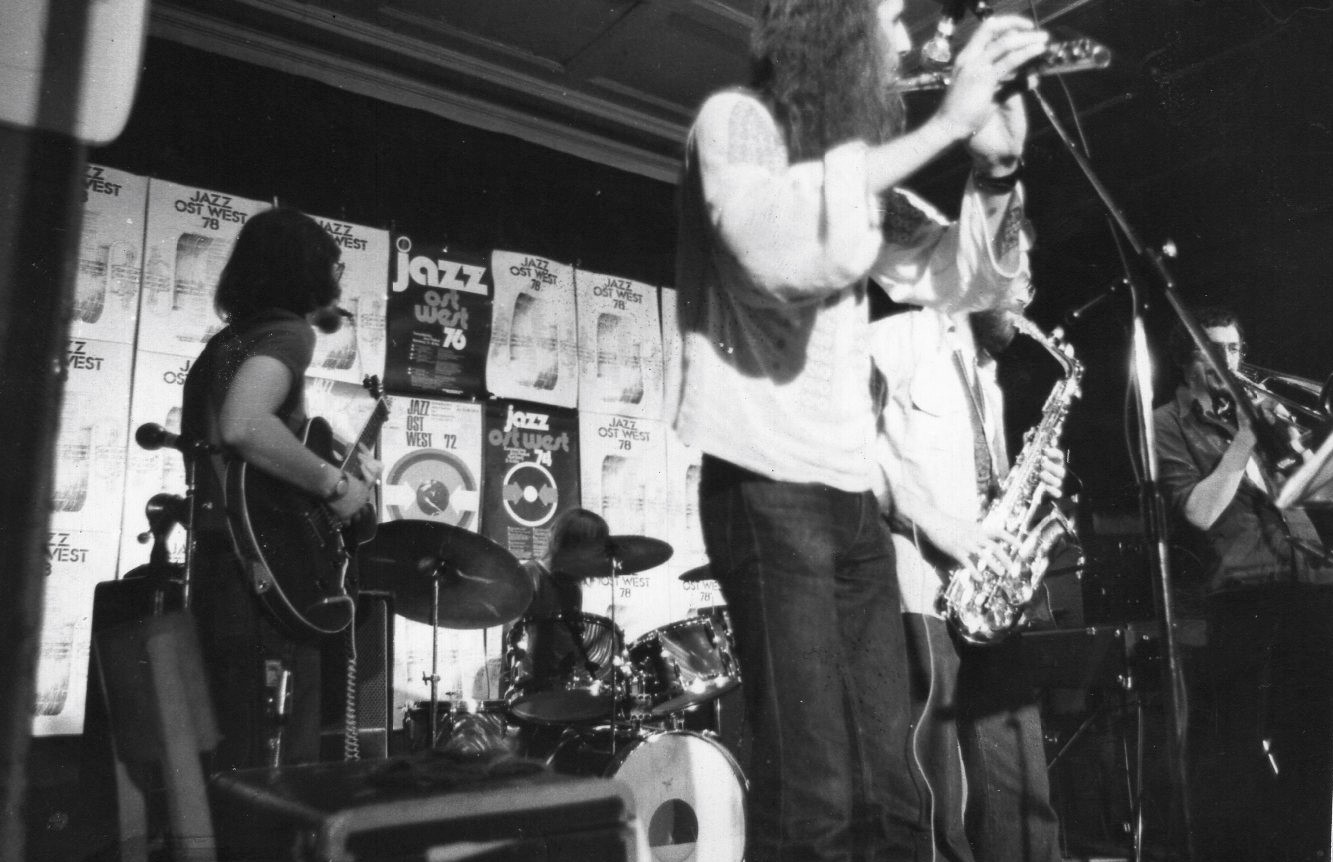Gebärväterli | Interview | “Im Tal der Emmen”
Gebärväterli was a German jazz fusion band established in the mid 70s in the Nuremberg jazz scene. The band released their only album ‘Im Tal Der Emmen’ via the Brutkasten label.
Longhair Records did a fantastic job with their official reissue of this extremely rare album. ‘Im Tal Der Emmen’ is a very diverse album blending elements from Frank Zappa and his The Mothers of Invention recordings to some traces of other experimental bands from Germany.
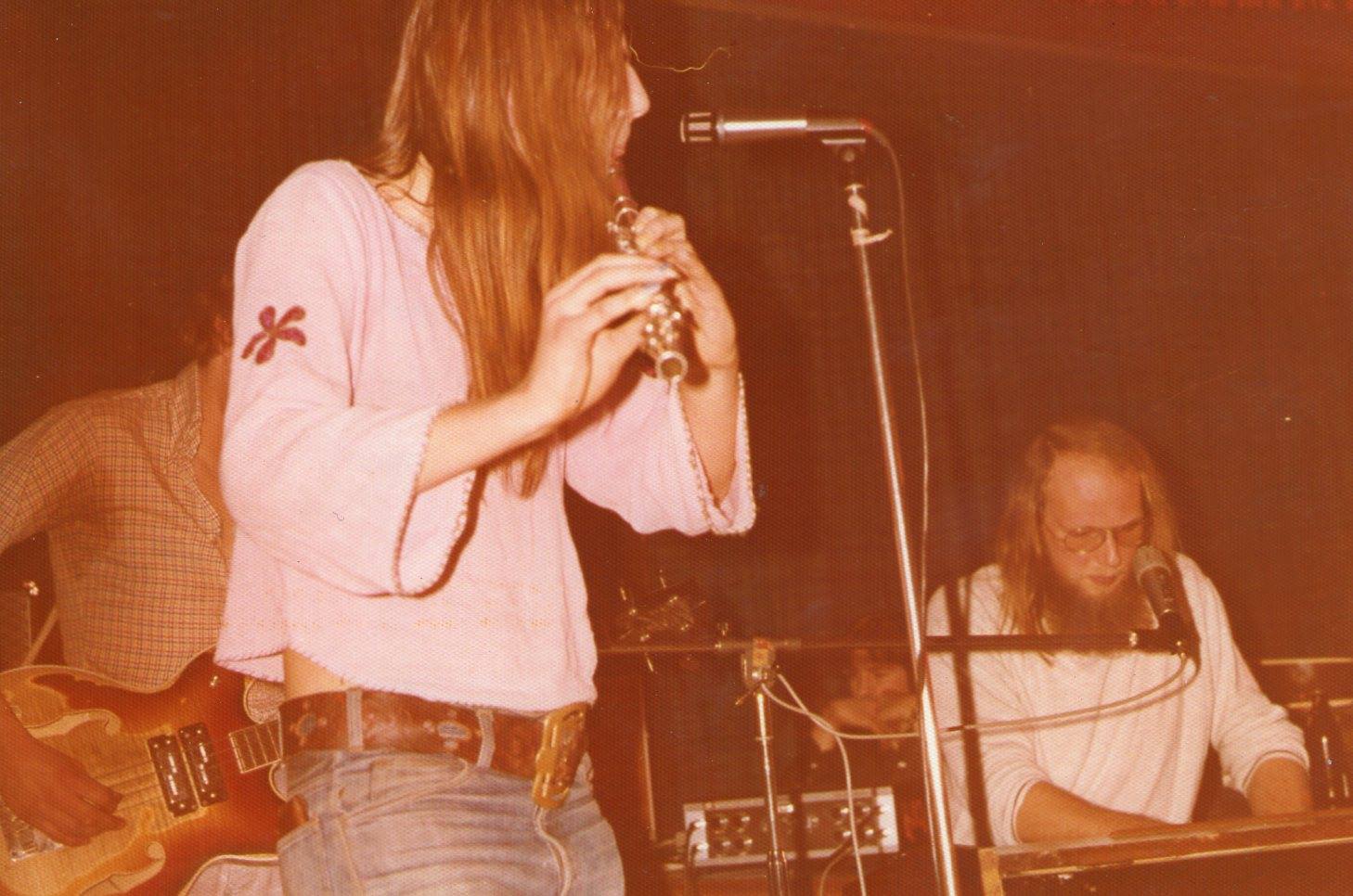
“The concept was to show the diversity of our ideas and music”
Where and when did you grow up? Was music a big part of your family life?
Dieter Weberpals: I grew up in Nuremberg with my mother, brother and my grandparents. My father died seven weeks after I was born of a disease he brought along from his imprisonment after WWII. My grandmother as well as my mother loved to sing, grandma especially whilst cooking. My brother (four years elder) had piano lessons as well as me. The teacher was unfortunately a disaster. Anyway my brother managed to keep piano and to join a band with his very first cheap farfisa organ. His first band rehearsed very often at home in our living room. They sat around the radio to listen to Radio AFN to wait for the tune they wanted to pick up. I grew up with Otis Redding and other soul-classics, hearing them when my brother’s band was listening to the radio. I started with my very first lovesickness to play on a flute I had gotten from a friend, then decided to learn on a serious flute with a serious teacher. I got myself a Yamaha transverse flute and lessons from the symphonic flutist in Nuremberg.
Norbert Kirchner: I grew up in Nuremberg during the 1950s. Music was not very important, just singing.
What was your upbringing like in post WWII Germany?
Dieter Weberpals: I was often offended by old veterans and fascists in public because of my “long hair.” At that time they didn’t even cover my ears, hahaha. Still a lot of nasty people around like nowadays once again with the rise of AFD in Germany.
When did you begin playing music? What was your first instrument? Who were your major influences?
Dieter Weberpals: First instrument piano, because of my teacher I never liked it. Second flute. Major influence: Herbie Mann, Jeremy Steig, and for sure Ian Anderson, but only the first two albums by Jethro Tull.
Norbert Kirchner: I began playing guitar when I was ten years old. It was not very satisfying. I was making a new start in 1965, when beat music became popular on the radio. My first influences were bands like The Beatles, Vanilla Fudge, The Remo Four…. later on Colosseum, Klaus Doldinger, Mothers Of Invention (Frank Zappa), King Crimson, Gentle Giant….
What bands were you a member of prior to the formation of Gebärväterli?
Dieter Weberpals: Gebärväterli was my very first serious band and I have been very lucky that my brother took me along. To learn with all those great and older musicians took me a lot of effort in rehearsing and practising.
Norbert Kirchner: Magic Buzz, Vaafer Deudd, Palmström….
Can you elaborate on the formation of Gebärväterli? Who were original members and did the lineup change?
Norbert Kirchner: Friedrich Pohrer, Yogo Pausch and I were playing together in a rock band to support the election of the socialist youth and decided to play another kind of music, more like jazz. We asked Reinhold Weberpals to play the keys and he brought his brother Dieter for the brass section (flute!). Then we asked Gerd Ackermann to play saxophone, and at last Manfred Demetz joined us. When Gerd Ackermann went to Spain, we had different saxophones: Norbert Eisner, Traugott Jäschke, Wolfgang Oppelt. At least we could gain the well known Mandi Riedelbauch.
When and where did you play some of the early gigs? How was the band accepted by the audience?
Dieter Weberpals: Dieter Weberpals: The first gig I remember was in 1973 in a youth club in Nuremberg. I was so nervous that I thought I had gotten an electric shock from the microphone, but it was only my nervousness. The first “real gig” with great review in the newspaper was in July 1974 at CPH. There were a lot of great concerts in Nuremberg big hall of the KOMM especially for the Jazz-Ost-West-Festival, but also gigs at Stuttgart and Frankfurt.
Norbert Kirchner: As much as I remember, our first gigs were at the end of 1973. The audience enjoyed it – I hope so.
I recently visited Nuremberg and it’s a really beautiful medieval city. What was the scene like there in the 70s?
Dieter Weberpals: Like everywhere we felt free to explore new ways of music. We could do almost everything, nobody cared for career, money et cetera, but good vibes and music. Why not brass section with flute, hahaha? Why not try a 5/4 rhythm? (I still love Dave Brubeck and Paul Desmond and their ‘Take Five’)… and to put this into a completely different feel with ‘Don Juan’?… or just fooling around with the idea of twelve tone-music which was the starting point for ‘Schubi Dubi Kong’. My composition ‘Gevatter Bärli’ tried to pick up some vibes with Terje Rypdal changes featuring flute and guitar, as well as an expanded percussion part which I initiated because I already liked those kinds of grooves which led me later on to Africa… and to start playing djembe drums besides my flutes. If you like to hear the tune, there is live recording on YouTube:
Norbert Kirchner: There was a vivid music scene and good occasions for gigs. We were in contact with most of the musicians in town.
How did you decide to use the name “Gebärväterli”?
Norbert Kirchner: We were a little bit drunk and were searching for a name similar to Embryo, Mothers Of Invention, Birth Control but wanted it to sound german. Gebärmutter was too feminin – we were men! Gebärväter didn’t sound good, so we decided to make it Swiss-like.
What influenced the band’s sound?
Dieter Weberpals: In the beginning: Chicago, Blood Sweat & Tears, The Remo Four, later on Wolfgang Dauner, Brian Auger, Peter Herbolzheimer Bigband, Klaus Doldinger’s Passport, Weather Report, et cetera.
Norbert Kirchner: Influenced by bands like Chicago, Mothers Of Invention, Klaus Doldinger, Gentle Giant and many more jazz and rock-jazz groups.
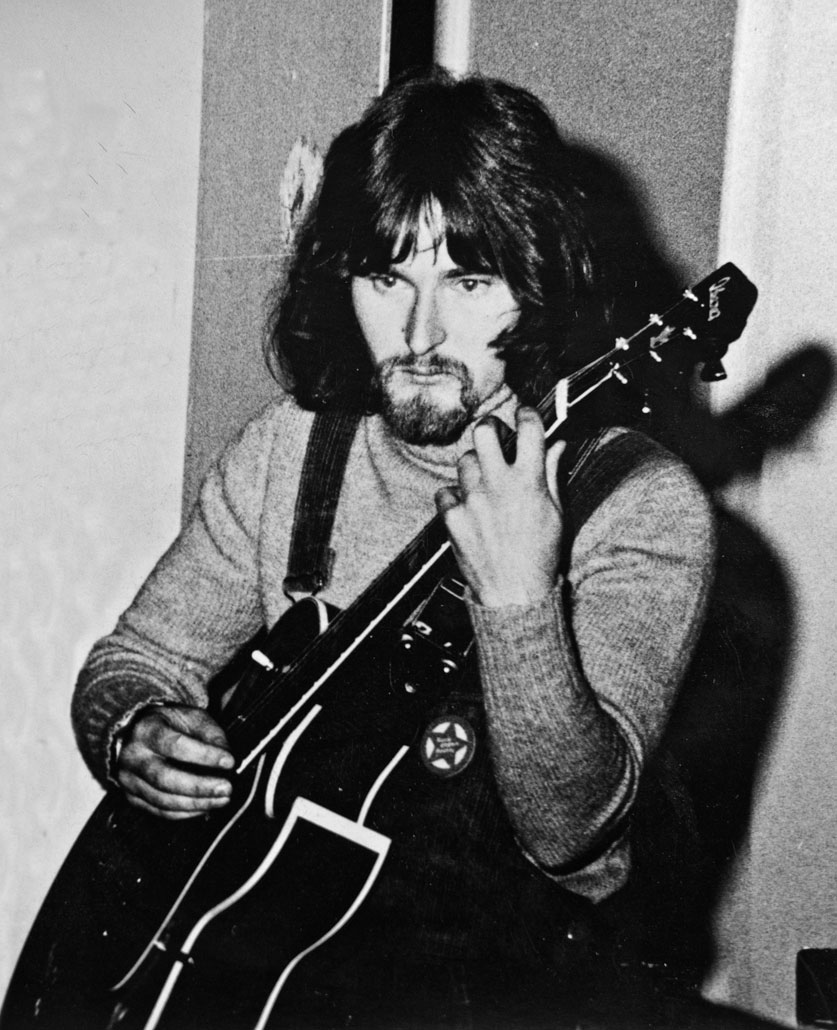
What are some of the most important players that influenced your own style and what in particular did they employ in their playing that you liked?
Dieter Weberpals: Herbie Mann for groove and relaxed playing, Jeremy Steig for articulation letting the flute sound “dirty as hell,” Rahsaan Roland Kirk and Yusuf Lateef for their “blues feel,” and Chris Wood of Traffic for his “feeling.”
Norbert Kirchner: Eric Clapton, Jimi Hendrix, Volker Kriegel, John McLaughlin, ….
In 1978 you won the best newcomer prize at the International Jazz Ost West Festival. How do you remember it?
Dieter Weberpals: Great concert, great audience, I thought together with the LP, a good start for the band to get better known and to bring us to a further step and perhaps even abroad. Unfortunately the end was near….
Norbert Kirchner: We were very proud of it and enjoyed playing at that great festival.
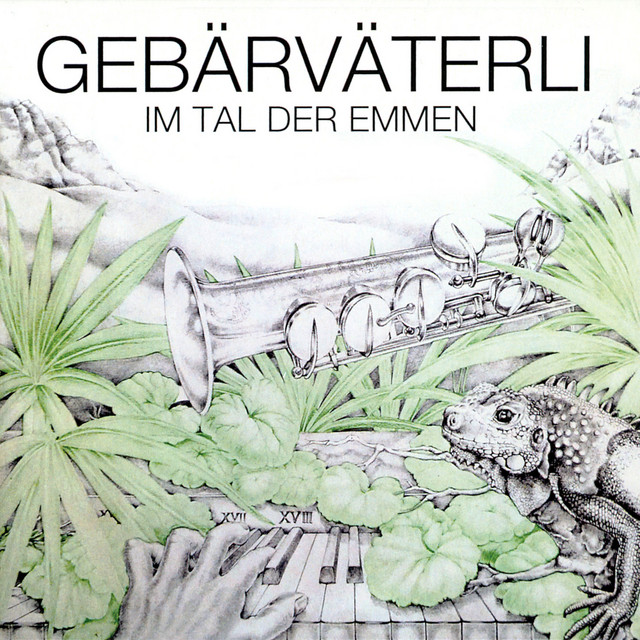
Brutkasten was a Nuremberg based-late 1970’s to early 1980’s label run by Peter Klimek. What were the circumstances surrounding the release of your album?
Dieter Weberpals: We were all happy that it might be possible to bring out a recording of our music. Friends of us, the band “Blister Chap” had already recorded and released an LP with Brutkasten and it sounded good.
Norbert Kirchner: Maybe some fans asked for records and we wanted to have something lasting for ourselves. It should help to improve the booking of gigs.
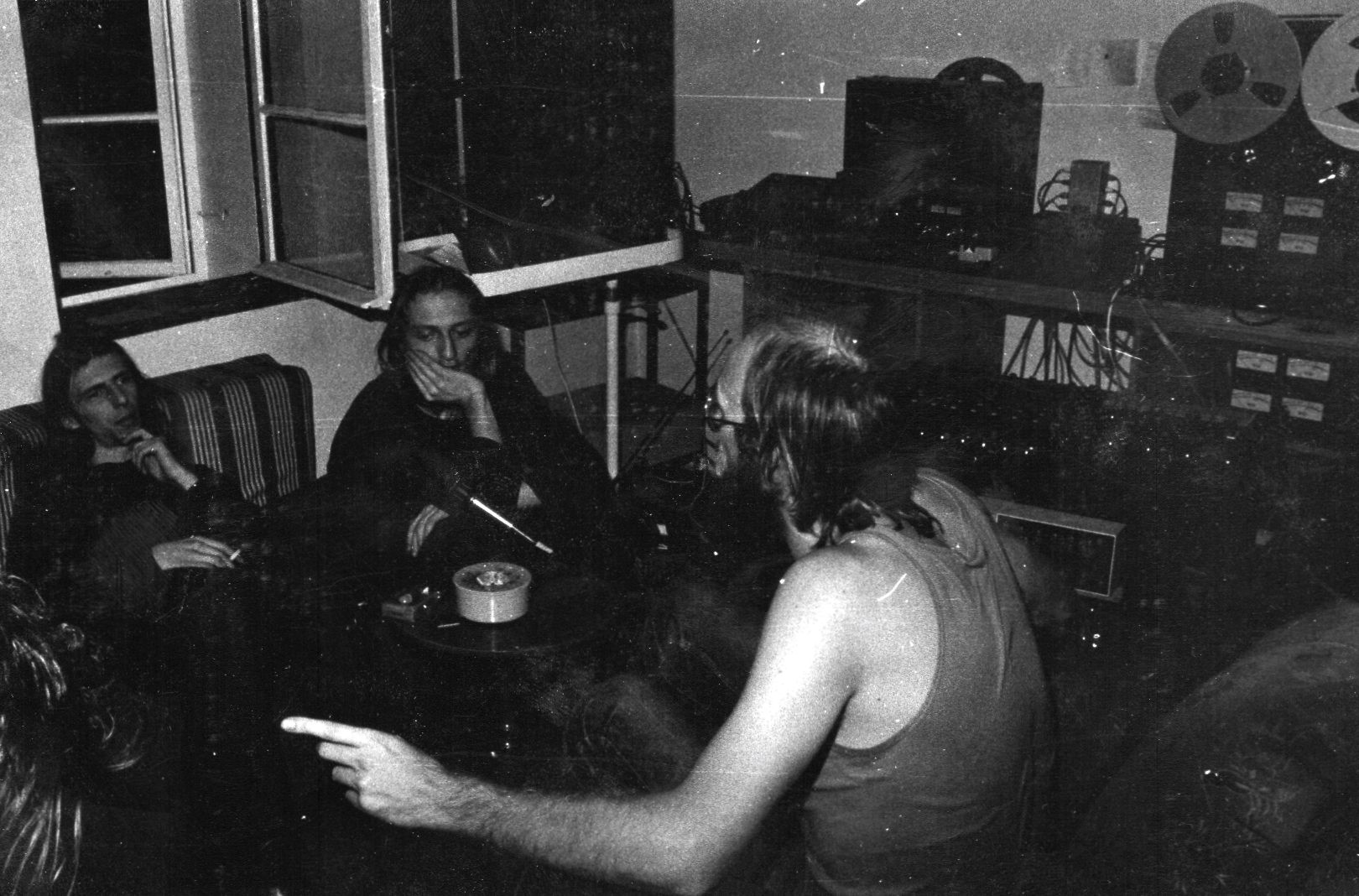
What’s the story behind your debut album? Where did you record it? What kind of equipment did you use and who was the producer? How many hours did you spend in the studio?
Dieter Weberpals: To get the Hammond organ on the 5th floor, … nobody of us will forget, because unfortunately an error whilst mixing deleted the organ of one of the tunes, so we had to carry it upstairs twice and my brother had to re-record the track.
Norbert Kirchner: The studio was on the 5th floor (without lift), the equipment was rather simple: 24 in 4 in 2 MM mixing console. Teac 4-track recording-machine, some effects … We spend four or five days recording and two or three days mixing.
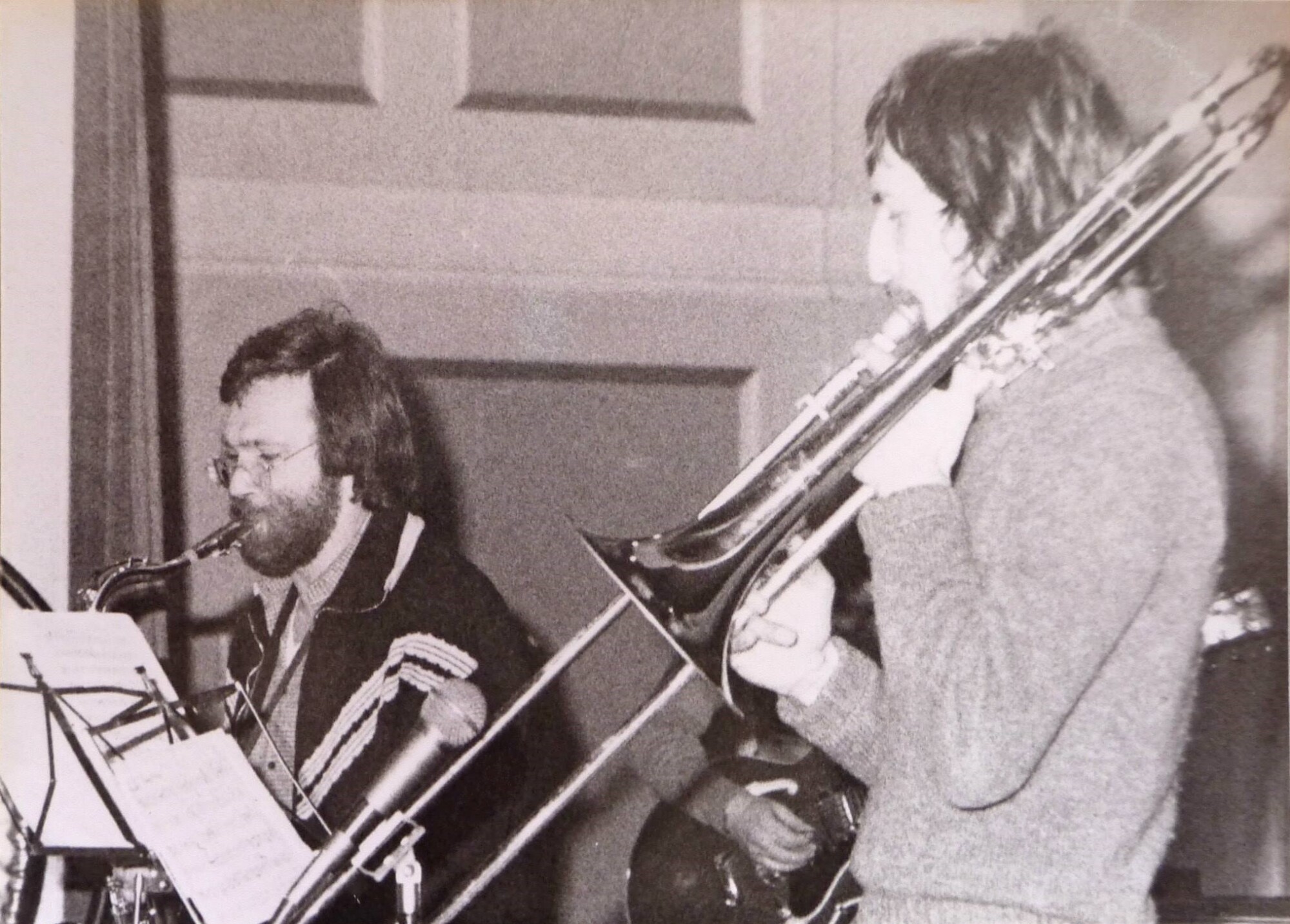
Please share your recollections of the sessions. What were the influences and inspirations for the songs recorded?
Dieter Weberpals: We simply did the tunes which could be recorded in that way. Meaning: rhythm section first, then the rest would play overdub. This led to a lot of communication that was impossible when we did live gigs. Solos didn’t end at the end of the solo, but after a measure of bars which have been pre-recorded….
Norbert Kirchner: During our live-auditions our songs lasted 10 – 40 minutes. Therefore we had to shorten our songs and chose them for their duration to fit the 20 minutes of one LP side.
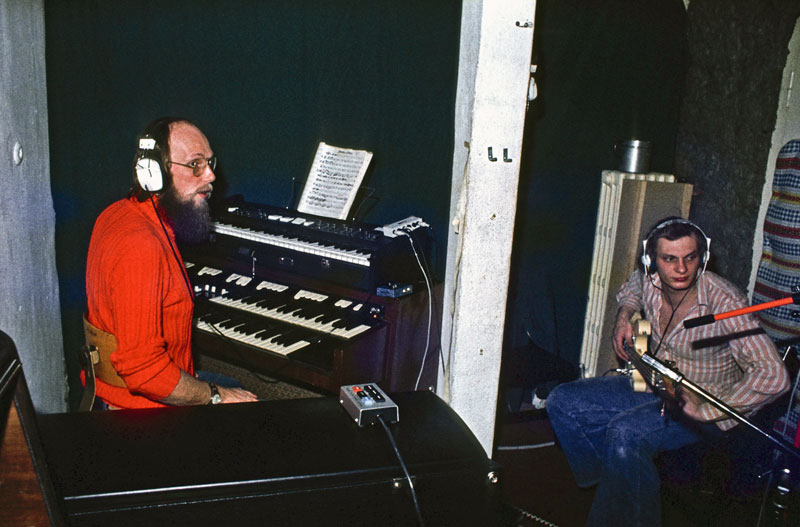
Was there a certain concept behind the album?
Dieter Weberpals: The concept was to show the diversity of our ideas and music.
Norbert Kirchner: We tried to present our music as close as possible to the live-feeling. Was not 100% succesful…. Listeners told us, our live performance was much better.
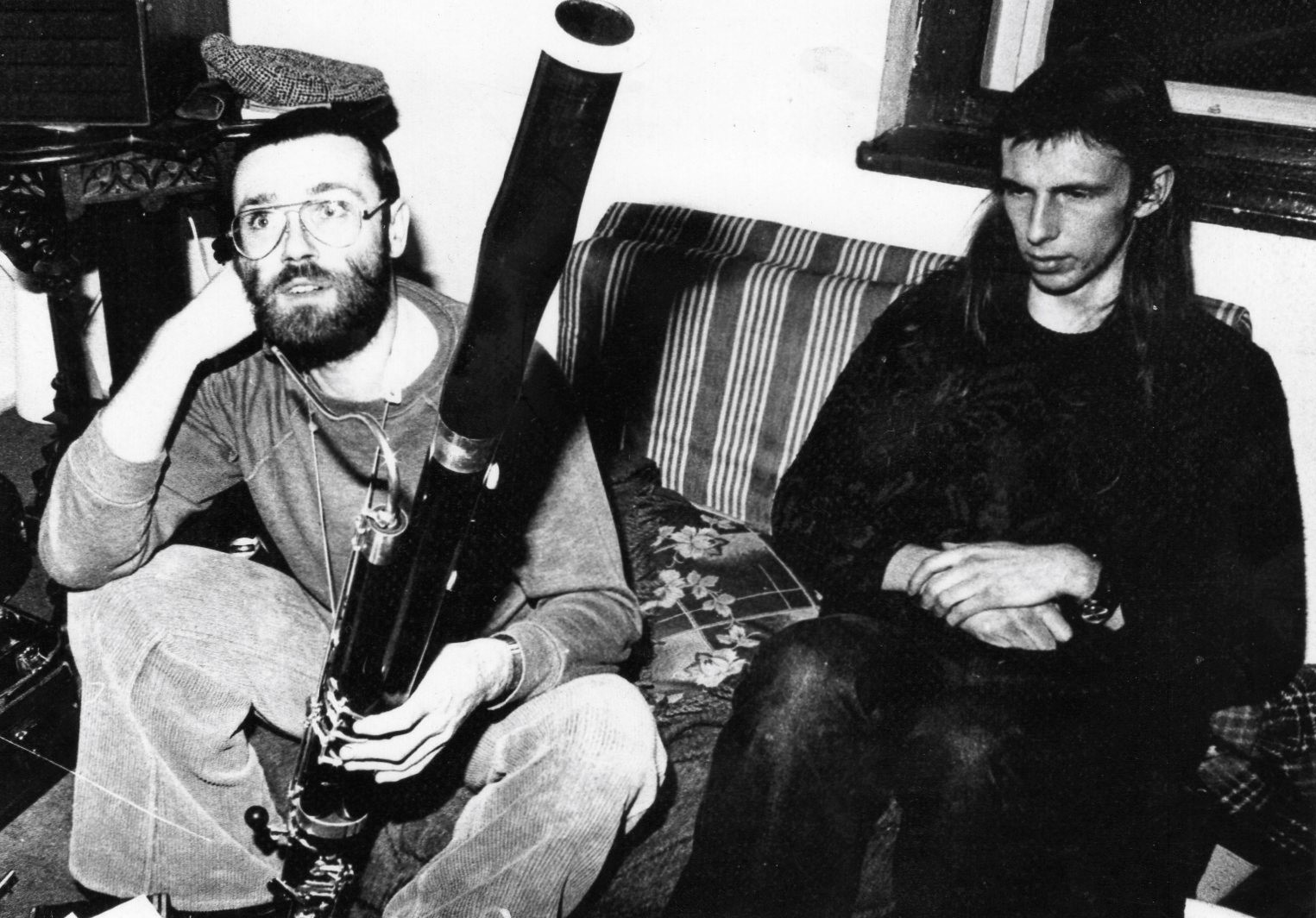
How pleased was the band with the sound of the album? What, if anything, would you like to have been different from the finished product?
Dieter Weberpals: I was quite content with the sound – especially nowadays it still sounds good, and if you remember the conditions we’ve recorded it, quite fresh and lively.
Norbert Kirchner: The sound was ok for us. Perhaps a live-recording would have been closer to our intentions.
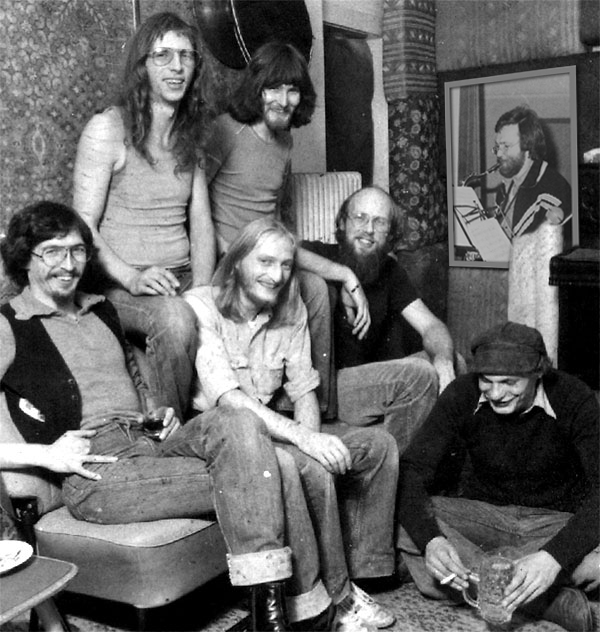
What happened when the band stopped? Let me take this opportunity to remember a reunion you had in 2014. What was it like being back on stage together?
Dieter Weberpals: Some of the band members wanted a family life and security of a fixed salary, which I can understand very well. I decided to go on with music and I never ever regretted it. I did the further steps with my own formation of “Argile” and we could make a living and play in clubs and at festivals all over Europe: London, Paris, Barcelona, Milano, Rome, Genova, Warsaw, Poznan, Prag et cetera, as well as in West and South-Africa.
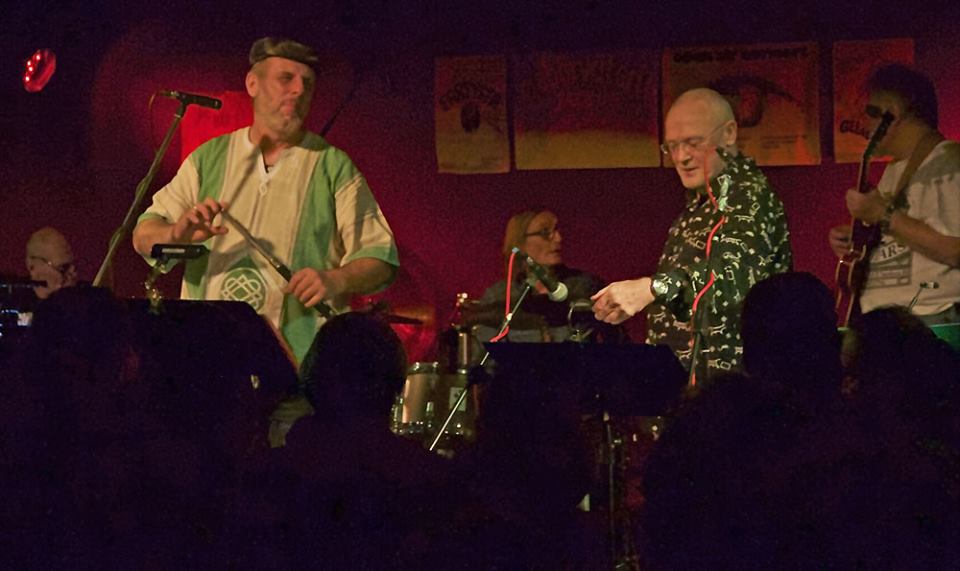
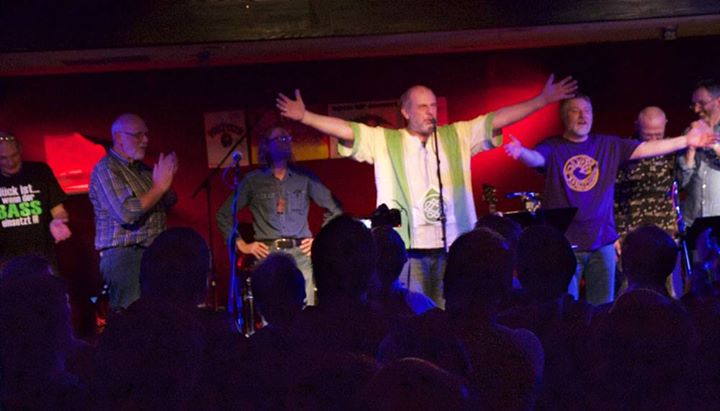
In 2014 I wanted to get back into a musical relationship with my brother who had stopped playing for a long period, so I invented this idea in bringing back the formation for a reunion-gig. For me emotionally it was not as easy as I was not in the feeling I was expecting with my brother. But anyway: great gig, good concert, sold out and fantastic public response.
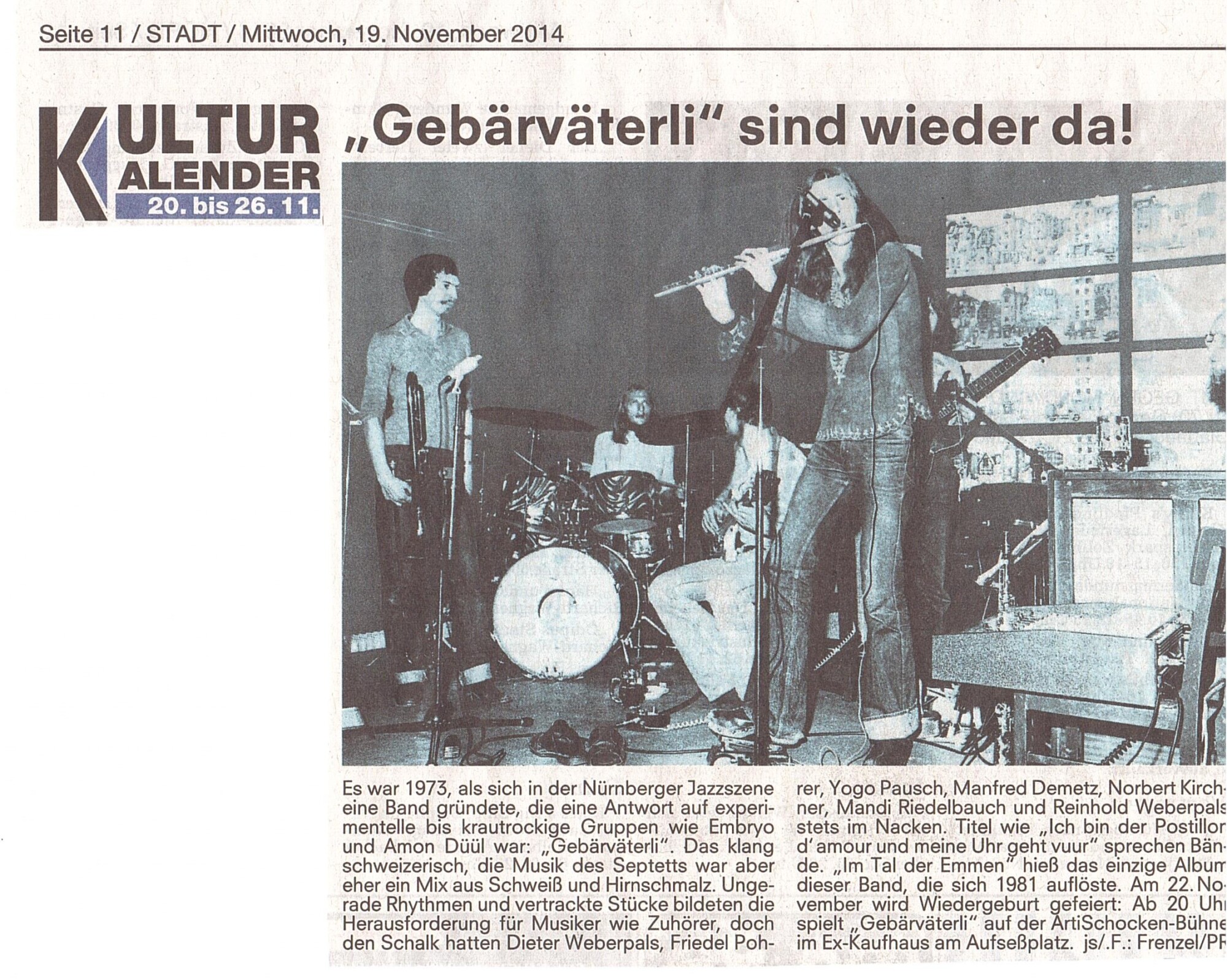
Norbert Kirchner: The band stopped, because some of our members could no longer spend the time for a professional band and longer concert-tours. The reunion was Dieter’s idea to celebrate his and Yogo’s 60th birthday. It was a real great feeling and we all and the audience enjoyed it very much.
Would love it if you could tell us about projects that later occupied your life. Dieter [Weberpals], you formed Argile, Yogo [Pausch] you played on countless records…
Dieter Weberpals: We went into different directions, so collaborations occured only from time to time. Yogo Pausch played for a year as a drummer with “Argile” and we did a duo-concert in 2013 with a composition of mine adapting some Gebärväterli licks.
Norbert “Slog” Kirchner and I worked together several times. Next month October 13th 2023 he will be part of the 35-Jubilee-Argile-special edition, where we will perform ‘Im Tal der Emmen’ together with great African drummers Massa Dembele and Aziz Sinka from Burkina Faso. [Editor’s note: Interview was conducted in September 2023]
Norbert Kirchner: I played for a short time with Dieter and Argile. Then I finished my design studies and joined the theatre as a scenarist. I played with a lot of bands: in general rock and fusion bands (Sudhaus, Actor’s Peace Band, Calvero…).
Looking back, what was the highlight of your time in the band? Which songs are you most proud of? Where and when was your most memorable gig?
Dieter Weberpals: All gigs have been an adventure! And I love all tunes.
Norbert Kirchner: There were many memorable gigs, one of the greatest was at the Jazz Ost-West Festival, but also our goodbye concert in 1981 and our revival in 2014.
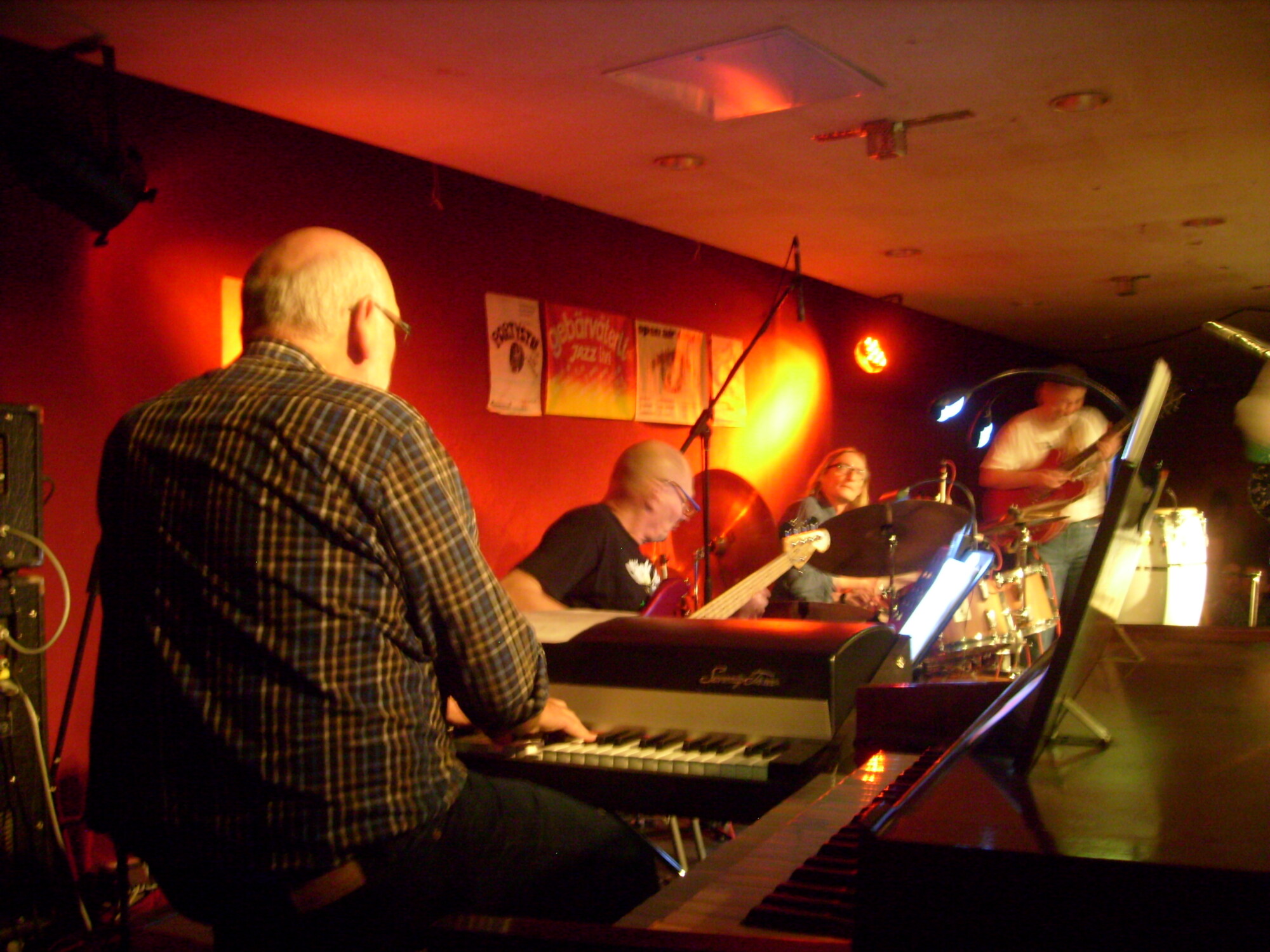
Is there any unreleased material by Gebärväterli?
Dieter Weberpals: Yes, the complete recording of ‘Gevatter Bärli’ – live at KOMM (see video to ‘Gevatter Bärli’ above).
Norbert Kirchner: There are some live-recordings on cassettes.
What currently occupies your life?
Dieter Weberpals: Music. My wife. Family. Our lovely house in the countryside.
Norbert Kirchner: I enjoy my retirement, still working as a freelance designer and playing music every Friday night with some friends – just for fun. Meanwhile as a drummer…
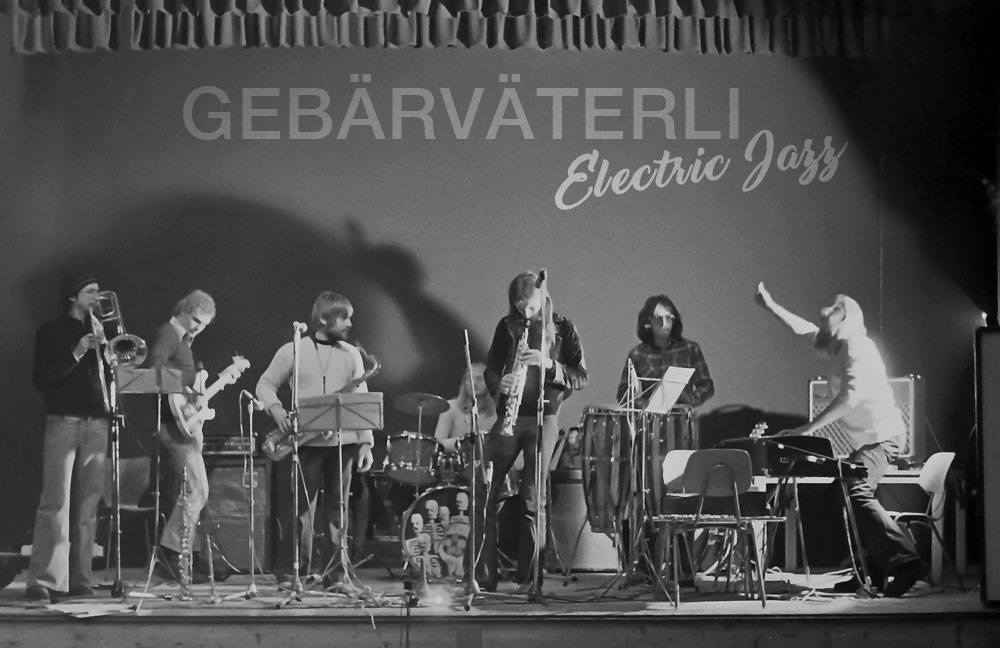
Thank you for taking your time. Last word is yours.
Dieter Weberpals: Thank you for your interest in Gebärväterli’s music. I think we did at that time some serious stuff worth listening to even today.
Norbert Kirchner: Thank you and have a good time!
Klemen Breznikar
Headline photo: Gebärväterliat Jazz Ost-West Festival (1978)

